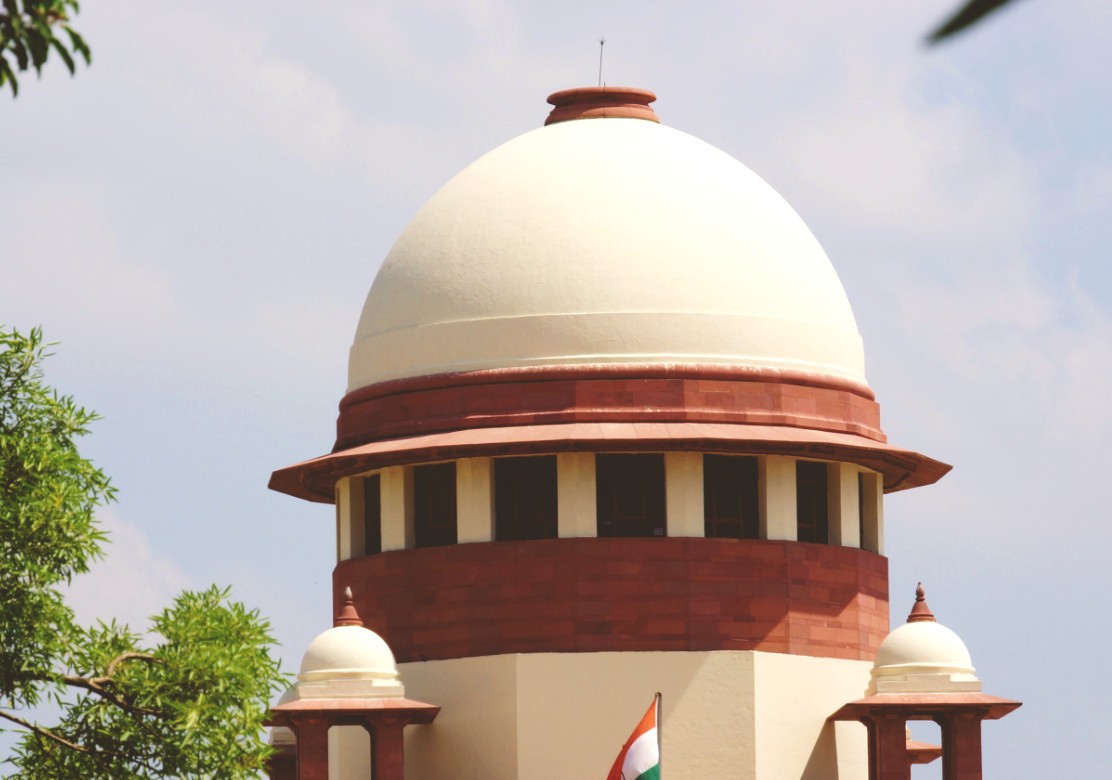In Civil Appeal No.8486 of 2011-SC- Majority decision of Bench of larger strength would prevail over decision of Bench of lesser strength, irrespective of number of Judges constituting majority: SC
Justices Indira Banerjee,Surya Kant,M.M.Sundresh,Sudhanshu Dhulia & Hemant Gupta [19-09-2022]

Tulip Kanth
New Delhi, September 22, 2022: In view of Article 145(5) of the Constitution of India concurrence of a majority of the judges at the hearing will be considered as a judgment or opinion of the Court, the Supreme Court has observed.
The 5-Judge Bench of Justice Indira Banerjee, Justice Surya Kant, Justice M.M.Sundresh, Justice Sudhanshu Dhulia and Justice Hemant Gupta was considering a matter which emanated from the judgment of the Division Bench of the Top Court in Shanti Fragrances v. Union of India and others where it was held that there was a direct conflict between the judgments in Kothari Products Ltd. v. State of A.P on the one hand and CST v. Agra Belting Works on the other.
The Division Bench had referred two issues to the Constitution Bench which were whether the Kothari (Supra) line of judgments or the Agra Belting Work (Supra) line of judgments was correct in law and the proper guidelines needed for the future for overruling an earlier decision of this Court.
The Bench reiterated the settled law that once goods are chargeable under the ADE Act, the State cannot levy sales tax on the same goods under a State enactment.
Justice Indira Banerjee, speaking for the Bench, opined that there was no conflict between the Kothari Products (supra) line of cases and the Agra Belting(supra) line of cases. It was noted by the Bench that the Kothari Products (supra) line of cases was on the question of whether tobacco or other goods specified in the First Schedule to the ADE Act and hence exempted from Sales Tax under State sales tax enactments, can be made exigible to tax under the State enactments by amending the Schedule thereto.
The Bench further clarified that on the other hand, Agra Belting Works (supra) line of cases was on the question of interplay between general exemption of specified goods from sales tax under Section 4 of the U.P. Sales Tax Act and specification of rates of sales tax under Section 3-A of the said Act. This Court held that goods exempted from sales tax under Section 4 would be exigible to tax by virtue of subsequent notification under Section 3-A specifying the rate of sales tax for any specific item of the class of goods earlier exempted under Section.
Thus, Justice Banerjee wrapped up this issue by observing that the reference to Constitution Bench was incompetent and the cases may be placed for decision before the regular Bench.
On the question of overruling of an earlier decision of this Court, the Bench placed reliance on the judgment of the Top Court in Dr. Jaishri Laxmanrao Patil v. The Chief Minister and Others , the Bench said, “ It is settled that the majority decision of a Bench of larger strength would prevail over the decision of a Bench of lesser strength, irrespective of the number of Judges constituting the majority.”
Concurring with the opinion of Justice Banerjee, Justice Heman Batra referred to the judgment in the Central Board of Dawoodi Bohra Community and Anr. v. State of Maharashtra and Anr. and emphasized that a decision delivered by a Bench of largest strength is binding on any subsequent Bench of lesser or coequal strength. It is the strength of the Bench and not number of Judges who have taken a particular view which is said to be relevant.
“Thus, it has been rightly concluded that the numerical strength of the Judges taking a particular view is not relevant, but the Bench strength is determinative of the binding nature of the Judgment”, Justice Batra held.
Sign up for our weekly newsletter to stay up to date on our product, events featured blog, special offer and all of the exciting things that take place here at Legitquest.




Add a Comment